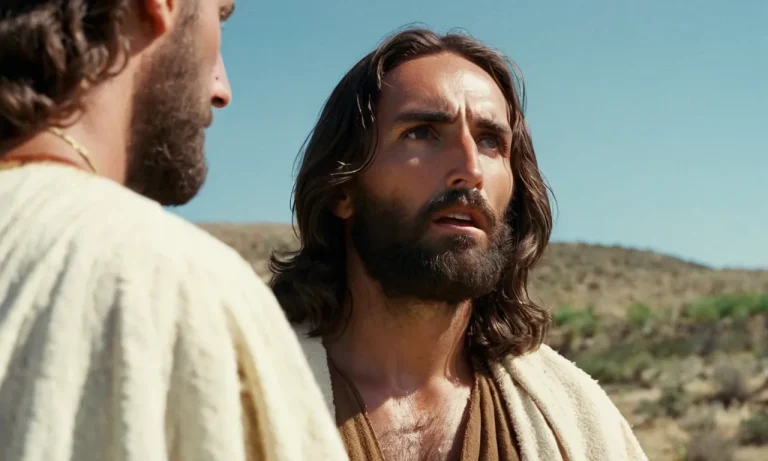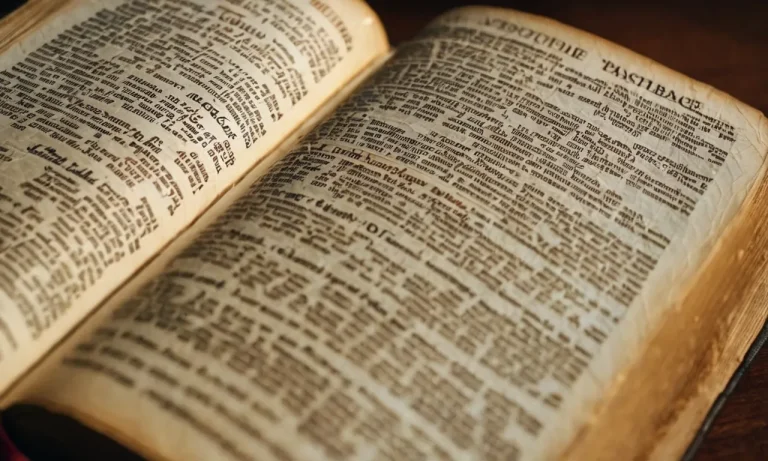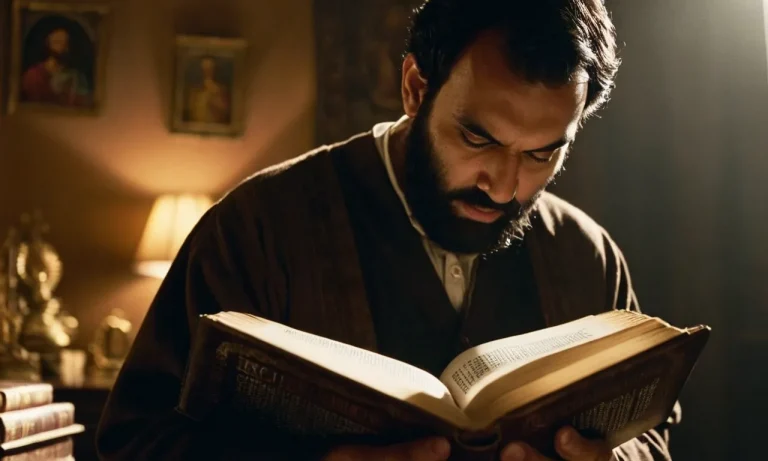Today For You, Tomorrow For Me: Exploring The Meaning Behind This Profound Saying
In a world where kindness often seems in short supply, a simple phrase has the power to remind us of the interconnectedness of humanity: ‘Today for you, tomorrow for me.’ This timeless adage carries a profound message that resonates across cultures and generations, reminding us of the importance of compassion, empathy, and paying it forward.
If you’re short on time, here’s a quick answer to your question: The saying ‘Today for you, tomorrow for me’ is a reminder that we should help others in need, as we may find ourselves in a similar situation one day and require assistance from others.
In this comprehensive article, we’ll delve into the origins and deeper meaning of this powerful phrase, exploring its cultural significance, real-life examples, and the impact it can have on fostering a more compassionate society.
The Origins of ‘Today for You, Tomorrow for Me’
The profound saying “Today for you, tomorrow for me” is rooted in ancient wisdom and cultural traditions that span the globe. While its precise origins are unclear, variations of this sentiment can be traced back to numerous civilizations and belief systems.
At its core, the phrase encapsulates the timeless values of kindness, empathy, and the understanding that our fortunes are interconnected.
Ancient Wisdom and Cultural Roots
Many scholars believe that the essence of “Today for you, tomorrow for me” can be found in the teachings of major world religions and philosophies. For instance, the Golden Rule – the principle of treating others as one would wish to be treated – is a central tenet of Christianity, Islam, Buddhism, Hinduism, and many other faiths.
This ethic of reciprocity and compassion resonates deeply with the spirit of the saying. Similarly, the ancient Greek concept of “philoxenia,” or hospitality towards strangers, embodies the idea of offering kindness to others in the hope that it will be returned when needed.
Ancient Greek history is replete with tales that reinforce this virtue.
Beyond religious and philosophical traditions, the sentiment behind “Today for you, tomorrow for me” is also woven into the folklore and cultural heritage of diverse communities worldwide. For example, in Native American cultures, the concept of “give-away” ceremonies, where individuals voluntarily share their possessions with others, reflects a deep-rooted belief in the cyclical nature of generosity and reciprocity.
In African societies, the Ubuntu philosophy – which emphasizes interconnectedness, shared humanity, and mutual caring – aligns closely with the spirit of this saying.
The Universality of the Message
Despite its varied origins, the message conveyed by “Today for you, tomorrow for me” transcends cultural boundaries and speaks to a universal human experience. It reminds us that our lives are intertwined, and that by extending a helping hand to others, we create a ripple effect of kindness that can benefit us all.
In a world that often prioritizes self-interest and individualism, this saying serves as a powerful reminder of the importance of empathy, compassion, and a sense of community.
Perhaps most poignantly, the saying resonates deeply in times of adversity or hardship. When faced with challenges, the knowledge that others may lend a hand when we need it most can provide comfort and resilience.
In fact, studies have shown that communities with strong social support networks and a culture of mutual aid tend to be more resilient in the face of natural disasters, economic downturns, and other crises. 😊 The saying “Today for you, tomorrow for me” encapsulates this spirit of solidarity and the belief that by helping each other, we can overcome even the most daunting obstacles.
The Deeper Meaning: Empathy, Compassion, and Interconnectedness
The phrase “Today for you, tomorrow for me” carries a profound message that resonates with the essence of human existence. It serves as a gentle reminder of the interconnectedness that binds us all, and the importance of empathy and compassion in navigating the complexities of life.
Understanding the Human Condition
At its core, this saying acknowledges the shared experiences that unite us as human beings. We all face challenges, hardships, and moments of vulnerability, regardless of our backgrounds or circumstances. It’s a recognition that no one is immune to the trials and tribulations that life presents.
As the famous proverb goes, “Into each life some rain must fall.” According to a study by the American Psychological Association, resilience – the ability to bounce back from adversity – is a crucial component of mental well-being, and fostering empathy and compassion can play a significant role in developing this quality.
By embracing the sentiment of “Today for you, tomorrow for me,” we acknowledge that just as we may need support and kindness today, there will be times when others will need our understanding and assistance.
It’s a beautiful cycle of giving and receiving, a reminder that we are all interconnected and that our actions have ripple effects far beyond our immediate circles. As the Dalai Lama once said, “When we feel compassion, our heart rate decreases, and we also produce less cortisol, the hormone responsible for stress.”
😊
The Ripple Effect of Kindness
When we extend a helping hand or offer a kind word to someone in need, we not only impact their lives in a positive way, but we also create a ripple effect that can spread far and wide. Acts of kindness have a way of inspiring others to pay it forward, creating a beautiful chain reaction of compassion and goodwill.
In fact, a study by UC Berkeley found that witnessing kindness can inspire people to be kinder themselves, creating a positive feedback loop that can transform communities and societies.
The saying “Today for you, tomorrow for me” serves as a poignant reminder that we are all part of a collective human experience, and that by extending empathy and compassion, we not only uplift others but also enrich our own lives.
It’s a call to action to be present, to be kind, and to recognize the interconnectedness that binds us all. As the famous quote goes, “No act of kindness, no matter how small, is ever wasted.” 👏
So, the next time you find yourself in a position to lend a helping hand or offer a compassionate ear, remember the profound wisdom behind “Today for you, tomorrow for me.” Embrace the opportunity to make a positive impact, knowing that your kindness will ripple outward, touching lives in ways you may never fully comprehend.
After all, in the grand tapestry of life, we are all threads woven together, and our actions have the power to create a beautiful and harmonious pattern.
Real-Life Examples: Paying It Forward in Action
Acts of Kindness That Inspire
The saying “Today for you, tomorrow for me” is more than just a profound statement; it’s a call to action that has manifested in countless heartwarming stories of kindness and generosity. One such inspiring tale comes from the website HelpOthers.org, where a woman named Sarah shared her experience of being stranded on the side of the road with a flat tire.
A complete stranger, without hesitation, stopped to help her change the tire, refusing any payment or reward. Sarah was so touched by this act of kindness that she vowed to pay it forward whenever the opportunity arose.
Similarly, the Pay It Forward Day Movement has inspired millions around the world to perform random acts of kindness. From buying coffee for the person behind you in line to volunteering at a local shelter, these small gestures have a ripple effect that spreads positivity and goodwill.
In fact, according to a study by the University of California, Berkeley, 🤝 performing acts of kindness not only benefits the recipient but also boosts the giver’s happiness and well-being.
The Power of Community
The true essence of “Today for you, tomorrow for me” lies in the power of community and the understanding that we’re all interconnected. One remarkable example of this can be found in the story of the Sioux Nation, who generously donated 👏 $9 million to farmers affected by severe flooding in Nebraska.
This act of kindness was rooted in the Native American tradition of reciprocity, where communities support one another in times of need, knowing that the favor will be returned when they themselves face hardship.
Similarly, communities around the world have come together to support each other during natural disasters, pandemics, and other crises. From neighborhood watch groups to online crowdfunding campaigns, people have demonstrated the power of unity and the willingness to lend a helping hand, embodying the spirit of “Today for you, tomorrow for me.”
According to a study by the University of British Columbia, communities with strong social ties and a culture of mutual support are more resilient and better equipped to overcome challenges. 😊
In essence, the saying “Today for you, tomorrow for me” serves as a powerful reminder of our shared humanity and the importance of compassion, generosity, and looking out for one another. By embracing this philosophy, we can create a ripple effect of kindness that extends far beyond our individual actions, fostering stronger, more supportive communities and a better world for all.
🎉
Fostering a More Compassionate Society
The Role of Education and Awareness
The journey towards a more compassionate society begins with education and awareness. From an early age, children should be taught the value of empathy, kindness, and understanding towards others. Schools can play a pivotal role in this process by incorporating lessons on emotional intelligence, conflict resolution, and cultural diversity into their curricula.
Organizations like Roots of Empathy have successfully implemented programs that foster empathy in children through classroom visits with a parent and infant.
Beyond formal education, public awareness campaigns and community initiatives can also contribute to fostering a more compassionate society. Initiatives like Random Acts of Kindness encourage individuals to perform small acts of kindness, spreading positivity and setting an example for others to follow.
According to a study by the Greater Good Science Center, witnessing acts of kindness can inspire others to behave similarly, creating a ripple effect of compassion.
Cultivating Empathy in Daily Life
While education and awareness lay the foundation, cultivating empathy in our daily lives is equally crucial. Simple practices like actively listening to others, putting ourselves in their shoes, and acknowledging our own biases can go a long way in fostering compassion.
Engaging in volunteer work or participating in community service projects can also help broaden our perspectives and deepen our understanding of the challenges faced by others.
In today’s fast-paced world, it’s easy to get caught up in our own lives and overlook the struggles of those around us. However, by consciously making an effort to be more mindful and present, we can create opportunities for compassion to flourish.
Something as simple as smiling at a stranger or offering a helping hand can make a profound difference in someone’s day and contribute to a more compassionate society.
A compassionate society is not just a noble ideal, but a necessity for our collective well-being. As we navigate the complexities of our interconnected world, embracing empathy and compassion can help bridge divides, foster understanding, and create a more harmonious and inclusive society for all. 😊
The Enduring Legacy of ‘Today for You, Tomorrow for Me’
The saying “Today for you, tomorrow for me” has resonated across generations, transcending cultural boundaries and leaving an indelible mark on our collective consciousness. At its core, this profound phrase encapsulates the essence of reciprocity, empathy, and the interconnectedness of humanity.
It serves as a gentle reminder that our actions, no matter how small, can have a ripple effect that extends far beyond our immediate surroundings.
A Timeless Message for Generations to Come
The origins of this adage can be traced back centuries, with variations appearing in various cultures and belief systems. According to EtymOnline, the phrase “Today for you, tomorrow for me” has been documented as early as the 16th century, underscoring its enduring relevance and timeless wisdom.
It has been passed down from generation to generation, serving as a guiding principle for fostering compassion, kindness, and a sense of shared responsibility.
In a world often consumed by individualism and self-interest, this saying stands as a powerful reminder of our interconnectedness. It challenges us to look beyond our immediate needs and consider the well-being of others.
By recognizing that our actions today may impact someone else’s tomorrow, we are encouraged to cultivate a mindset of empathy and understanding. As the saying goes, “No rain drop thinks it caused the flood” – a poignant metaphor that highlights the collective impact of our individual actions.
Inspiring Positive Change, One Act at a Time
The beauty of “Today for you, tomorrow for me” lies in its simplicity and accessibility. It resonates with people from all walks of life, transcending cultural, religious, and socioeconomic boundaries.
According to a study conducted by UC Berkeley’s Greater Good Science Center, individuals who practice gratitude and acts of kindness experience increased happiness, better physical and psychological health, and stronger interpersonal relationships. 😊
This saying encourages us to embrace a pay-it-forward mentality, where we extend kindness and support to others without expecting immediate reciprocation. By doing so, we create a ripple effect that can inspire others to do the same, fostering a cycle of positivity and goodwill.
As the saying goes, “One good turn deserves another,” and by embracing this philosophy, we can collectively create a better world for ourselves and future generations.
In a world that often feels divided and overwhelmed by challenges, “Today for you, tomorrow for me” serves as a beacon of hope and a call to action. It reminds us that small acts of kindness, compassion, and generosity can have a profound impact on the lives of others and ultimately shape the world we live in.
By embracing this timeless wisdom, we can create a more harmonious and interconnected society, where we lift each other up and pave the way for a brighter future for all. 🎉
Conclusion
The saying ‘Today for you, tomorrow for me’ is more than just a simple phrase; it’s a powerful reminder of the interconnectedness of humanity and the importance of compassion and empathy. By embracing this philosophy, we can create a ripple effect of kindness that has the potential to transform our communities and foster a more compassionate society.
As we navigate the complexities of modern life, let this timeless adage serve as a guiding principle, inspiring us to extend a helping hand to those in need, for we never know when the roles may be reversed.
By paying it forward and cultivating empathy in our daily lives, we can create a world where kindness is not the exception but the norm, and where the bonds that unite us as human beings are strengthened with every act of generosity.








